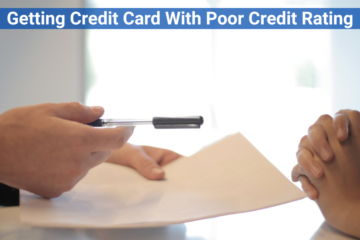Handling your credit can be confusing at times. You’ll be hearing different opinions from individuals holding their credit cards for longer. Some thoughts will be contradicting too. That is why taking time to study and understand how your credit works are very crucial. Consulting a credit repair advisor might also be a big help. Below is the list of credit common mistakes.
Here are common mistakes that individuals assume concerning their credit.
1. Not checking your credit report
Most individuals ignore their credit reports and think it’s okay. In fact, ignoring your credit score makes you unaware of your credit status, and you’ll be missing the incorrect information on your credit report if there’s any.
From minor mistakes like the incorrect spelling of your name and the wrong block number on your address to huge mistakes like lenders forgetting to update your payment or unfamiliar accounts, those mistakes can drag your credit score down.
You have nothing to lose in checking your credit report with the help of a credit agent, so make sure you get your free credit report from two major credit bureaus; TransUnion and Equifax. And another fact: checking your credit report will not hurt your credit score.
2. Avoiding credit
If you are afraid of debt and don’t want to own many credits. Then good for you. However, if you have too little credit, it will be harder to buy a home or a car unless you pay in cash. Even renting an apartment will be a struggle. Because lenders will have nothing to base your creditworthiness from.
Having multiple credits is okay as long you pay your balance in total and you are a responsible borrower.
3. One late payment
It doesn’t matter how many times you missed your payment or how many times you’ve been late because it will still affect your credit score gravely. Paying on time is the most significant factor that affects your credit score. Even one missed or late payment can have profound implications.
If you see yourself in a situation you can’t control, you need to contact your creditor. Most issuers will only report late payments after 30 days. Make sure to get your creditor and tell them where the problem lies; they might be able to help you.
4. Carrying a large balance
Carrying a large balance and maxing out your credit limit is not a good idea. Even if you’re paying your monthly balance, it will still leave a wrong impression on lenders. The higher your credit utilization ratio, the higher it impacts your credit score negatively.
The credit utilization ratio is how much you owe divided by your credit limit. If you have a $1,000 credit limit and owe $800, that’s beyond the ideal ratio.
5. Rejecting a pre-approved credit limit increase
If you’re afraid you’ll be tempted to spend more with the higher credit limit, think about this first. If you stick to your spending habit, it will lower your credit utilization ratio, which is a good thing. So think twice before rejecting a credit limit increase.
6. Closing old accounts
One thing that lenders look at when you’re applying for a loan is your credit history. Lenders will look at how much experience you have with credit; closing old accounts will be a bad idea. Even if you’re not using it, keeping the credit open for future reference will be best.
If you really want to close an account, make sure you approach it smartly. It means paying off your entire balance and closing the account immediately. If you can’t pay in full, transfer your balance to the credit card you want to keep.
Make sure to contact your issuer and confirm if the balance is zero.
If you need help with your credit, many top credit repair companies may help you.
7. Applying for too much credit in a short time
Applying for credit requires a hard inquiry that impacts your credit card negatively. If you open accounts consecutively within a short period, it will decrease your credit score drastically. Also, you’ll be labeled a high-risk borrower because lenders will assume you’re in desperate need of credit.
8. Not knowing how a joint credit card works
It’s important to know that when you’re an authorized user, you only have access to the credit card to purchase. It will not appear on your credit report nor build your credit score. If you’re the primary user and have someone as an authorized user, you’ll have complete responsibility for paying your balance and their balance.
But if you are a co-signer, their credit will appear on yours. So be cautious when you are assigning a co-signer and an authorized user.
Conclusion: Credit Common Mistakes
Credit is becoming a part of an individual nowadays. Almost all individuals have their share of credit, and understanding your own is crucial. You should have the knowledge and understanding of how your credit works. In that way, you will be able to maintain good credit.
If you need help with your credit, Credit Repair Now is a company that can help you fix your credit. Drop us a message or call us. We answer right away.




